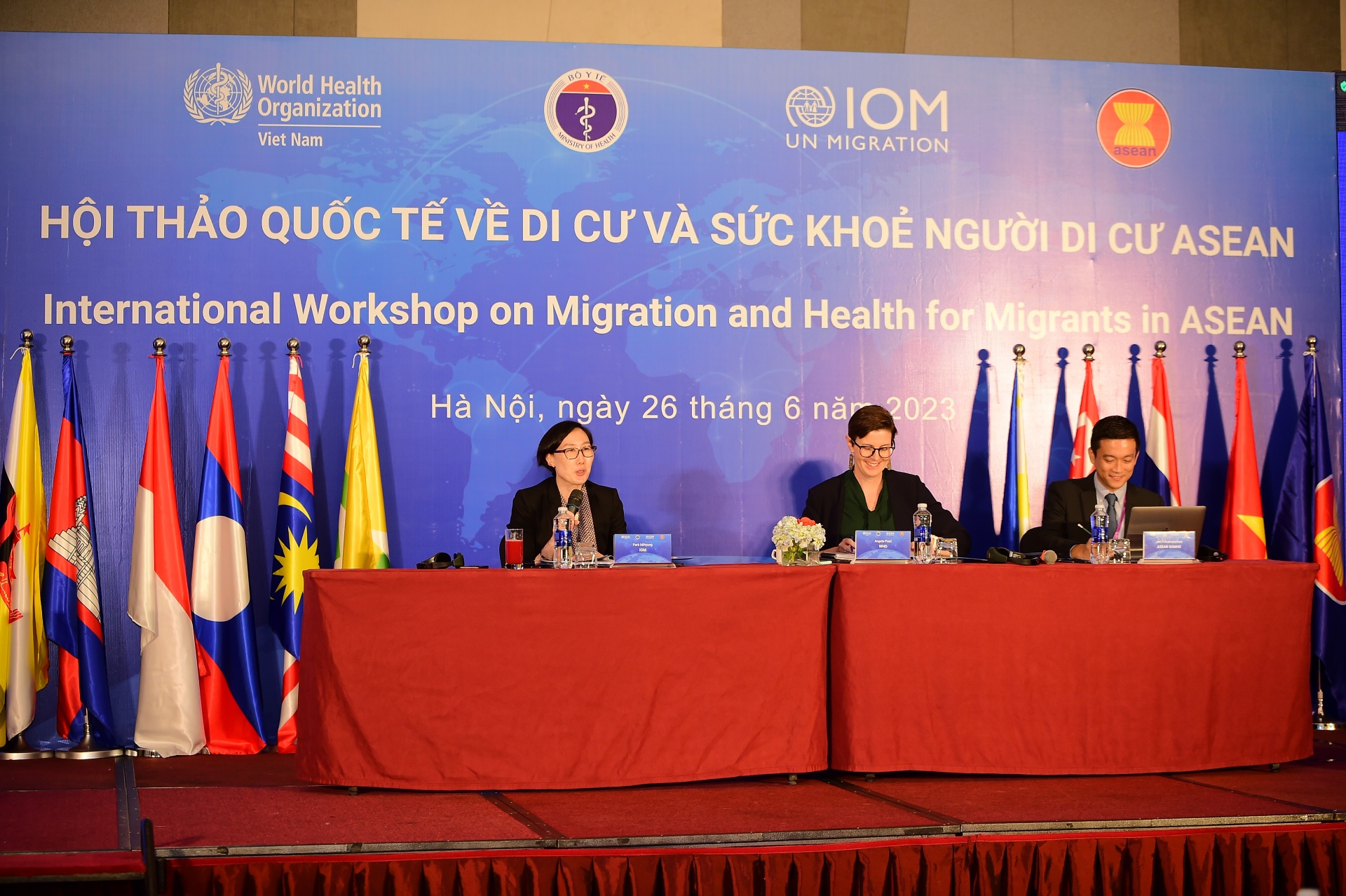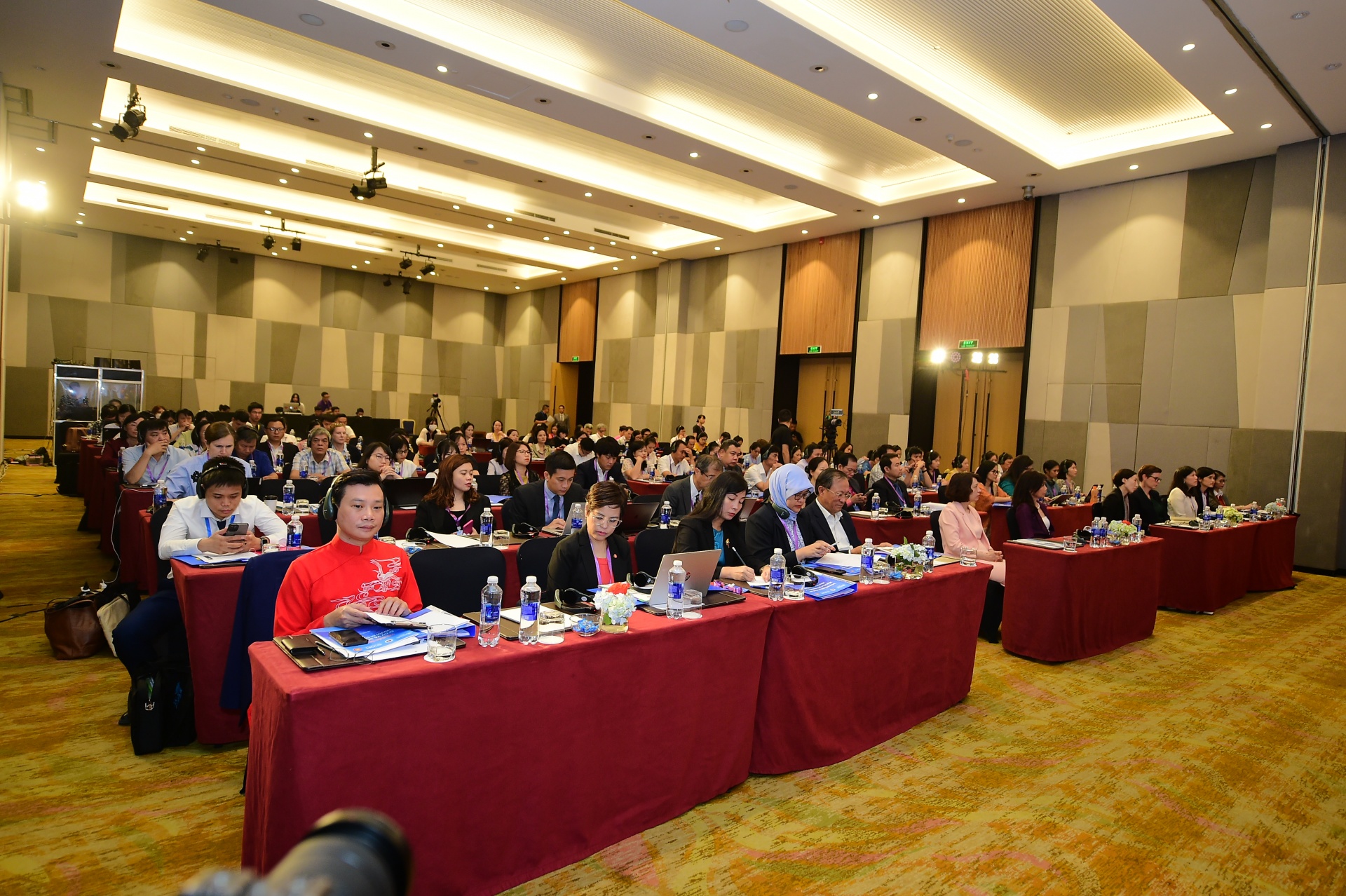Cooperation to improve migrant health and well-being in ASEAN region
The workshop provided a platform for participants to discuss and strengthen cooperation among ASEAN member states to improve the health and wellbeing of migrants. It also called for streamlined collaboration for better access to healthcare services, especially for cross-border migrants.
 |
The Ministry of Health (MoH) of Vietnam led the workshop in collaboration with ASEAN member states, and with support from the International Organisation for Migration (IOM) and the World Health Organisation (WHO).
Nguyen Thi Lien Huong, Deputy Minister of Health, emphasised the importance of the workshop, saying, “The International Workshop on Migration and Health for migrants in ASEAN is an excellent opportunity for all ASEAN members to collectively assess the current situation of migration, and its impact on socioeconomic development, in the region and the world. We can share lessons learned, initiatives, and policy recommendations to strengthen cooperation between member states.”
IOM’s chief of mission Park Mihyung said, “Healthy migrants contribute to healthy communities. I am proud that the IOM and ASEAN nations have taken a positive step towards advancing the migrant health agenda in accordance with the goals of the Global Compact for Safe, Orderly, and Regular Migration (GCM)."
“The GCM is the first inter-governmentally negotiated agreement that prioritises health as a cross-cutting issue, with references to health and healthcare access in several objectives. By aligning with the GCM with the UN's Sustainable Development Goals and World Health Assembly Resolutions, we have a significant opportunity to promote the health of migrants, foster multi-sectoral partnerships, and develop data-driven policies in ASEAN,” Mihyung added.
 |
ASEAN has long been a significant hub of origin, transit, and destination countries for migrants and their families. The region has the highest number of international migrants in Asia, following India and China. Over the past three decades, international migration within the ASEAN member states has witnessed a significant increase as people of diverse genders, ages, abilities, sexual orientations, and ethnicities migrate due to various push and pull factors.
However, the burden of health issues within ASEAN remains complex, including infectious diseases, occupational health hazards and injuries, mental health challenges, non-communicable diseases such as cardiovascular disease and diabetes, and maternal and children's health.
Recent studies conducted by the IOM in the region have highlighted the challenges faced by cross-border migrants in accessing healthcare, including language barriers, discrimination, financial constraints, and a lack of portable health insurance across borders and official cross-border referral mechanisms for migrant patients. They can be made even more vulnerable in pandemic situations due to inadequate access to healthcare, as shown in the last few years.
Migrant health is also a top priority for the ASEAN Health Sector under the ASEAN Post-2015 Health Development Agenda, specifically, the ASEAN Health Cluster (AHC 3) on Strengthening Health Systems and Access to Care. The AHC 3 aims to enhance health systems’ capacity and capability to improve services for documented migrants, including migrant workers, especially women and children.
What the stars mean:
★ Poor ★ ★ Promising ★★★ Good ★★★★ Very good ★★★★★ Exceptional
Related Contents
Latest News
More News
- Foreign leaders extend congratulations to Party General Secretary To Lam (January 25, 2026 | 10:01)
- Russian President congratulates Vietnamese Party leader during phone talks (January 25, 2026 | 09:58)
- Worldwide congratulations underscore confidence in Vietnam’s 14th Party Congress (January 23, 2026 | 09:02)
- Political parties, organisations, int’l friends send congratulations to 14th National Party Congress (January 22, 2026 | 09:33)
- 14th National Party Congress: Japanese media highlight Vietnam’s growth targets (January 21, 2026 | 09:46)
- 14th National Party Congress: Driving force for Vietnam to continue renewal, innovation, breakthroughs (January 21, 2026 | 09:42)
- Vietnam remains spiritual support for progressive forces: Colombian party leader (January 21, 2026 | 08:00)
- Int'l media provides large coverage of 14th National Party Congress's first working day (January 20, 2026 | 09:09)
- Vietnamese firms win top honours at ASEAN Digital Awards (January 16, 2026 | 16:45)
- ASEAN Digital Ministers' Meeting opens in Hanoi (January 15, 2026 | 15:33)

 Tag:
Tag:



















 Mobile Version
Mobile Version